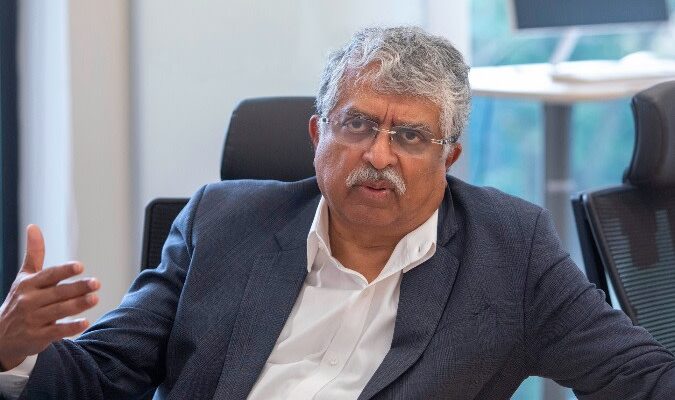Unlock the Editor’s Digest for free
Roula Khalaf, Editor of the FT, selects her favourite stories in this weekly newsletter.
SoftBank’s billionaire founder Masayoshi Son held talks with Intel’s chief executive about buying its faltering contract chipmaking business in the weeks before Monday’s announcement that the Japanese company would invest $2bn in the US group’s shares.
Son has met Intel’s Lip-Bu Tan since the latter’s appointment in March to discuss a potential deal, according to multiple people with knowledge of the talks, as the US company tries to find a solution for its advanced chip manufacturing business, which is struggling to compete with Taiwan’s TSMC.
The talks were wide ranging and could have led to multiple outcomes, including joint ventures with third parties or a minority investment similar to that announced on Monday. However, two of the people said the announcement did not preclude a bigger deal over Intel’s so-called foundry business in the future.
SoftBank and Intel declined to comment.
The US government has also been exploring taking a stake in Intel. The people familiar with the talks said such a move would bolster the case for further SoftBank investment. “Nobody wants to take the risk of Intel’s fabrication plans and tech alone . . . the only customer is Intel,” said one of the people.
Intel has struggled to attract customers for its chip foundry since Tan’s predecessor Pat Gelsinger announced it would open up to external business in 2021. The costly move involved investing billions of dollars in new fabrication plants on the bet that customers would materialise.
The costs from these projects, combined with Intel’s troubled finances, have prompted Tan to warn he may withdraw the company from the most advanced chip manufacturing processes.
Son, the SoftBank founder, is visiting the US every two weeks and has built a close personal connection with US President Donald Trump, said the same people. Son and Trump appeared together in January to announce the $500bn Stargate data centre project.
The White House and US commerce department did not respond to requests for comment.
Intel’s foundry business would offer a way for Trump to maintain advanced chip capacity in the US as a counterweight against TSMC’s dominance and give Son another key component in his ambitious artificial intelligence plans.
TSMC currently produces the vast majority of the world’s most advanced chips. While much of the manufacturing occurs in Taiwan, it has been investing in new facilities in Arizona that have already started to make chips for Nvidia and Apple.
Buying Intel’s foundry would be consistent with Son’s plans to build a complete AI infrastructure that includes robotics, energy and chipmaking.
The SoftBank boss already has stakes in OpenAI and Nvidia and is the driving force behind Stargate. Last month, SoftBank-owned Arm, which creates and licenses semiconductor designs, confirmed it was exploring the idea of launching its own chips.
SoftBank held talks with Intel last year about producing an AI chip, but the plan foundered after the US chipmaker struggled to meet the Japanese group’s requirements.
Trump’s view of Tan has turned dramatically in recent weeks, from the president calling for his resignation last month to declaring his “success and rise . . . an amazing story” after meeting the Intel boss.
A person familiar with Son’s talks with Intel said the US defence department’s decision in July to become the largest shareholder of an American rare earths producer could be a model for unlocking more investment from SoftBank.
The Pentagon’s $400mn investment in MP Materials to build a manufacturing site highlighted the Trump administration’s willingness to directly fund companies to break China’s dominance of critical minerals and bolster domestic supply chains.
SoftBank’s shares fell about 2 per cent in Tokyo on Tuesday, but they are up more than 75 per cent year to date as investors bet on the conglomerate returning capital to investors through the listing of its portfolio companies and from OpenAI’s soaring valuation.


